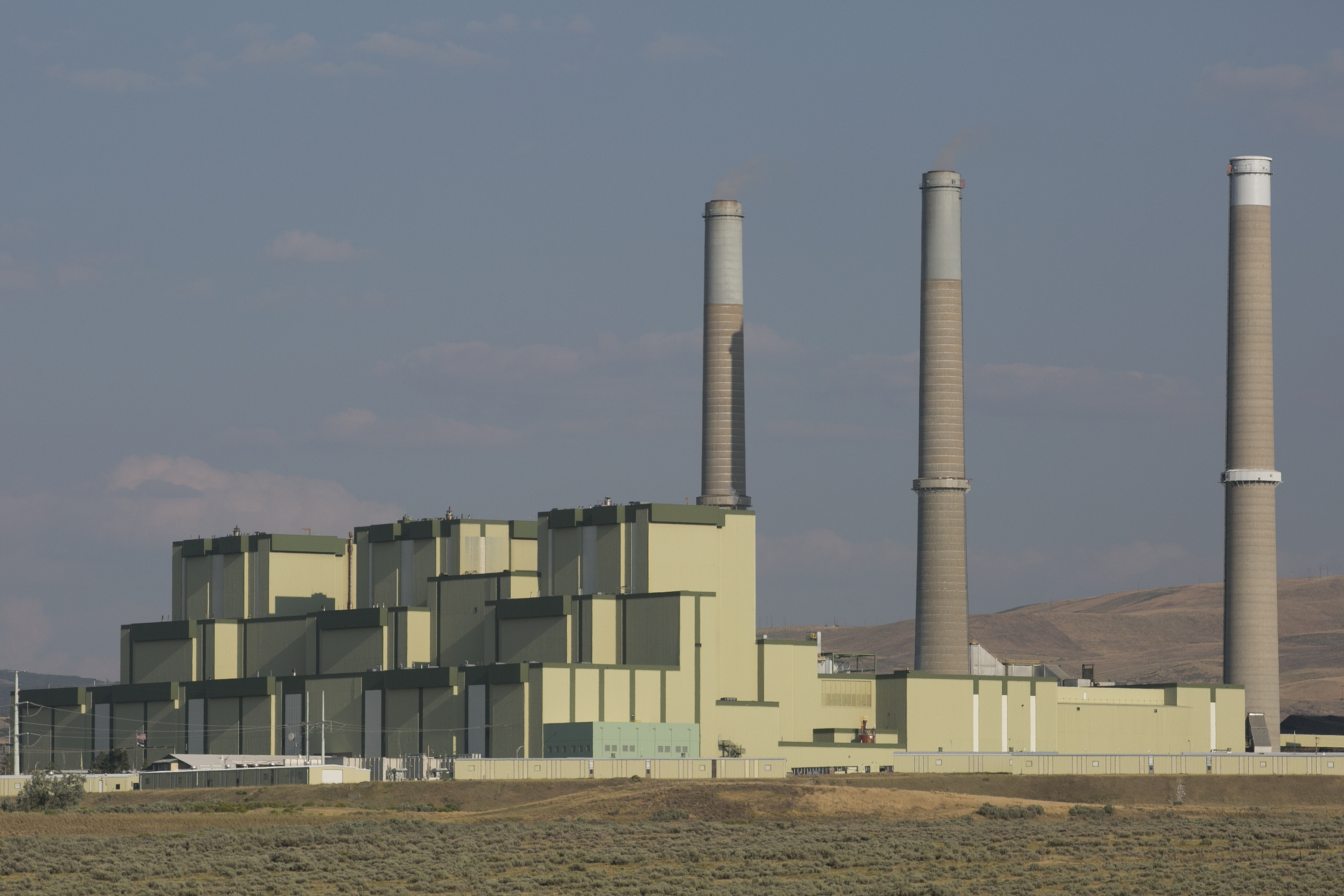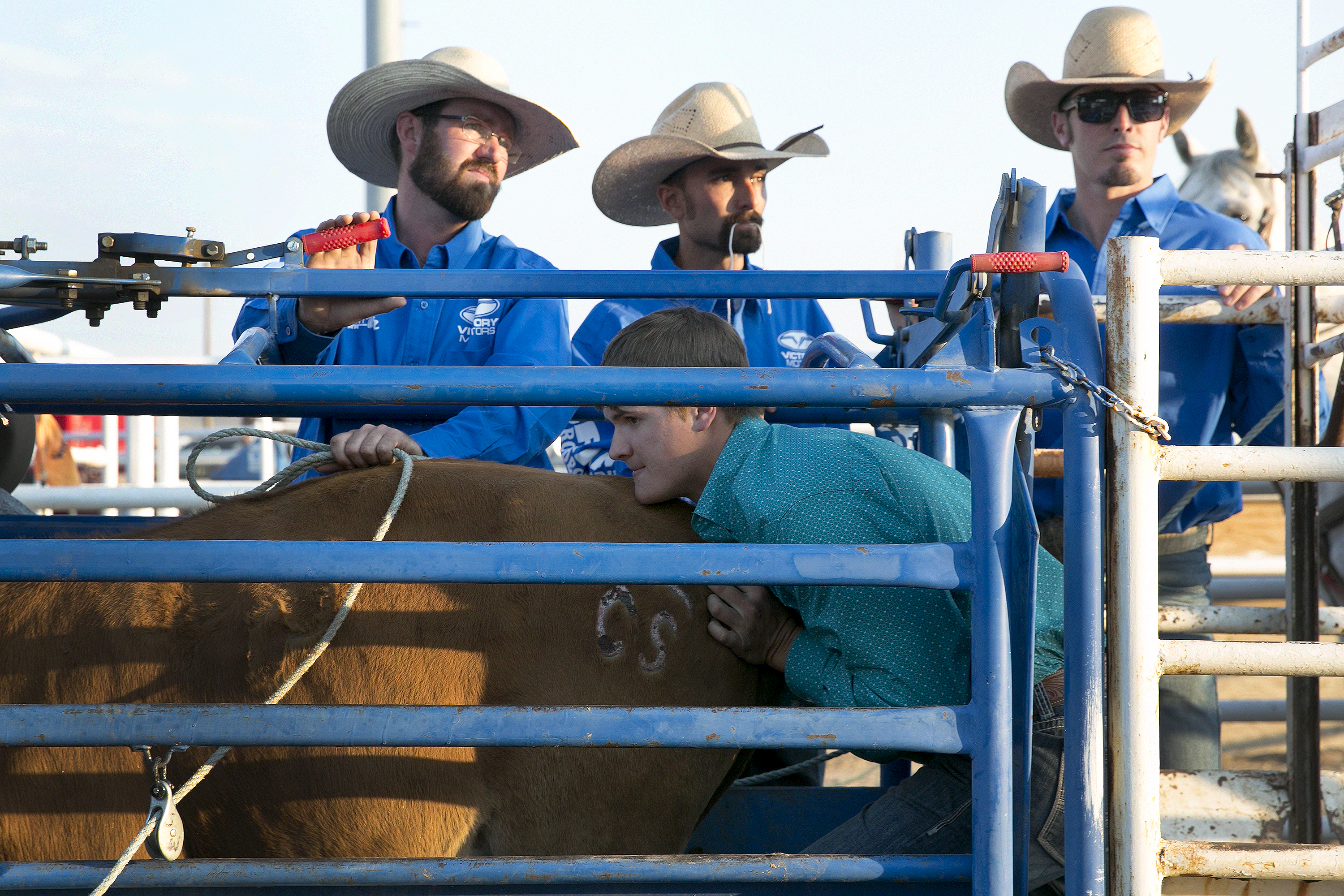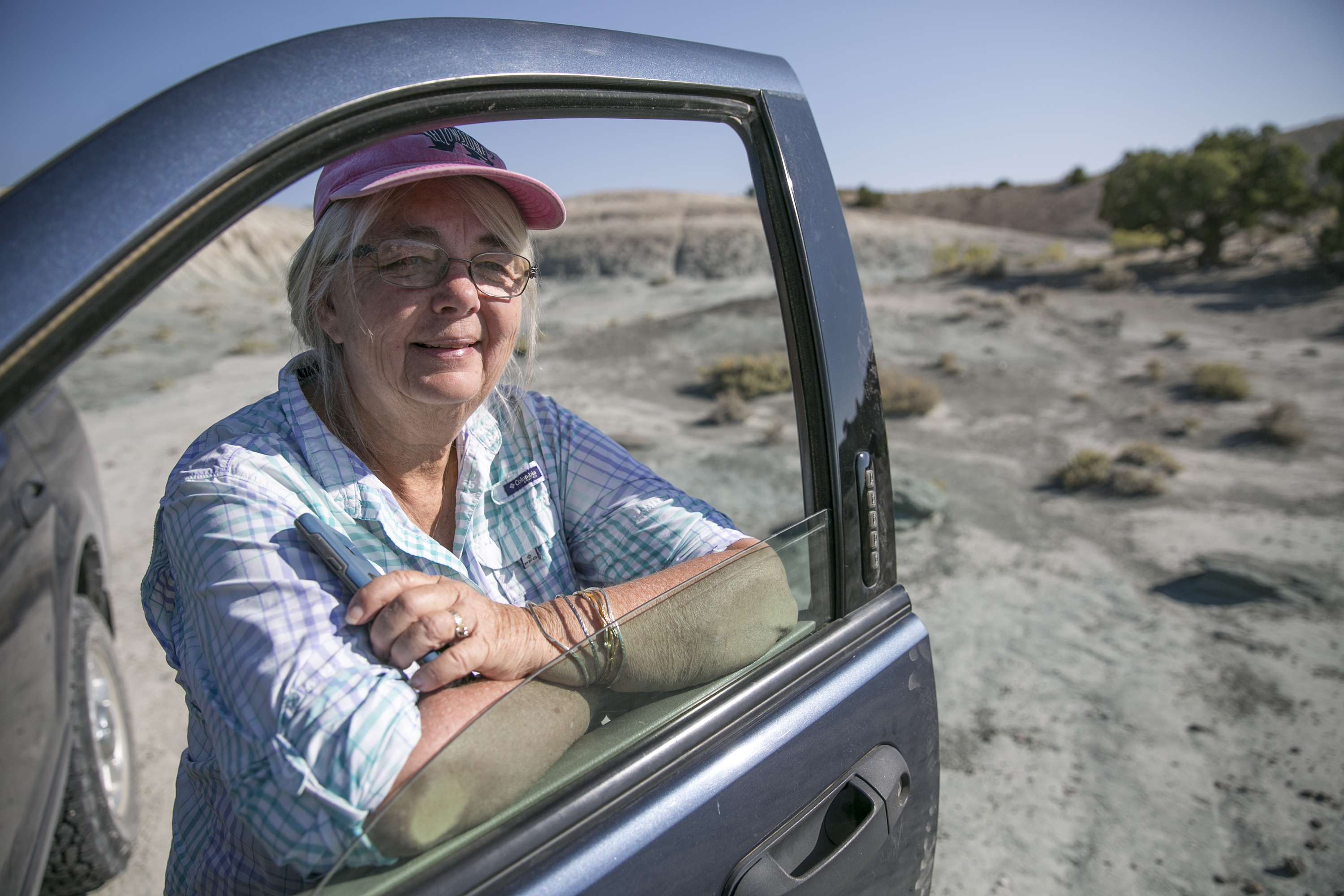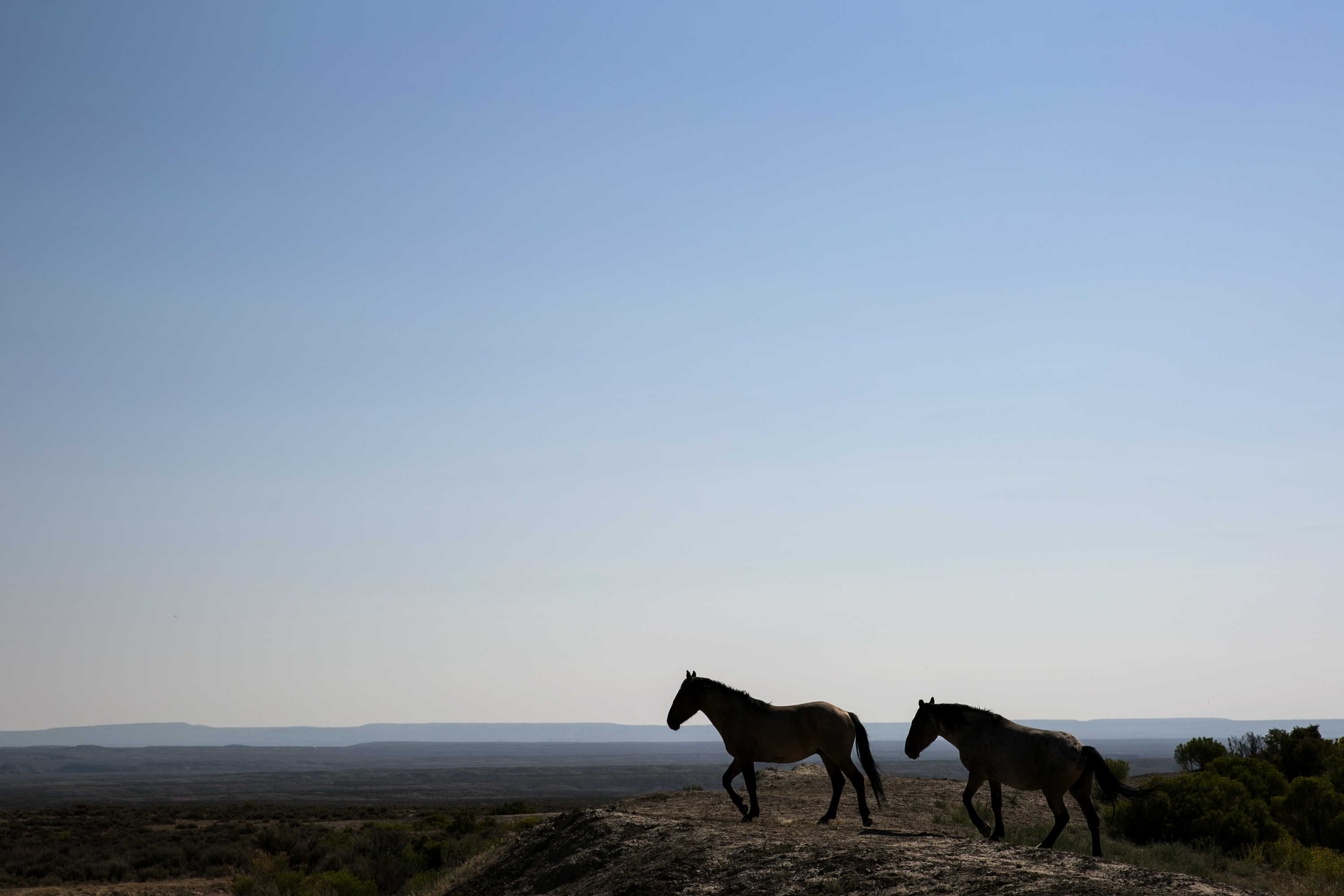Craig, Colorado
- Interviews By
- Grace Hood
- Photos By
- Hart Van Denburg
- Back To Map
Craig is a city that depends heavily on coal mining and coal-fired power generation. Clues about the town's sympathies are everywhere, including on this sign on Highway 40 in the center of town.
The coal-fired Craig Station power plant is operated by Tri-State Generation and Transmission Association.
The Hayden coal-fired power station between Craig and Steamboat Springs in northwest Colorado is currently operated by Xcel Energy. It originally went into service in 1965.
Craig Mayor John Ponikvar at the Napa Auto Parts store he owns in Craig. As the November elections approach he's thinking about how candidates talk about the coal economy. A future with less coal and coal-related jobs translates into significant consequences for local tax coffers, he says. “How do we maintain the county roads? How do we maintain the schools? The schools get 46 percent of those property taxes right now,” Ponikvar said.
Politics in Moffat County hinge heavily on support for the coal, oil and gas industry. Commissioner Don Cook said folks he knows breathed a sigh of relief after Election Day 2016. “The night of the election results, or that morning, there seemed to be a mood change within our community — when President Trump got elected.” As the same time, he and other civic leaders say they understand that technology and market forces will likely change the energy economy over time, and that the community needs to diversify its economy and adapt.
Glenda has lived in northwest Colorado all her life, and worked at the Trapper coal mine a little over 15 years. When we asked her what she thought the most pressing issue was in Colorado as Election Day approaches she said, “The division of the state and the fact that the entire state is dictated to by the Front Range. I would like to see the State of Colorado change the district awarding system for the Electoral College, so that the state is truly represented, and its voters are truly represented, like the founders of the Constitution intended." What would that mean? "The politicians within the state would have to be more centrist, and would have to take into consideration the rural areas of the state, and not just the urban areas on the Front Range.”
Glenda Bellio, who has lived her whole life in northwest Colorado and works at the Trapper coal mine, with one of her prize possessions. When she looks at the governor's race this year, “It’s a tough one. You need to balance it out. The governor needs to be balanced because there are two distinct types of people within the state, and I would just like to see, no matter who gets in [the governor’s office] I want to see them take consideration of both the rural and the urban areas. Unfortunately it seems like the last several governors have very much leaned toward the urban areas."
Glenda says she supported Carly Fiorina in the Republican presidential primary in 2016, but then voted for President Trump in the general election. "I think, if you consider what our other choice was, I think he’s doing great. Would I have rather seen somebody else put in office? Yes." Trump “has definitely helped" the coal industry, she says. "I mean a lot of the stuff that was being put into activation by the previous administration definitely hurt the industry, and there was no consideration for what the industry was already doing, where they were heading.”
The Moffat County Fair's annual pro rodeo gets started Thursday evening Aug. 10. 2018.
The Moffat County fair pro rodeo Aug. 10 2018.
The Moffat County Fair pro rodeo, Aug. 9, 2018.
A roadside scene at down along Highway 40 between Craig and Maybell.
Sisters Cindy Wright and Aletha Dove lead the Wild Horse Warriors at Sand Wash Wild Horse Management Area. In the photo above, they drive across the HMA in Aletha's SUV. This is a remote, parched, barren slab of landscape between Maybell and Dinosaur National Monument, where the horse count is about twice as large as the Bureau of Land Management says the land can support. The sisters have different political leanings but as they bounce along dirt roads, spotting horses and calling them by name, checking on water tanks for the horses that they manage along with other volunteers, they talk about how they work together towards a solution for the horses, even as they argue about the situation that put these horses in peril in the first place. Among the things they do agree on: The need for people to work together at the local level to sort out problems and find solutions — and not just for the horses in Sand Wash Basin.
“If there’s something going on around you that you disagree with, or you’re not liking the direction that it’s headed, you either get involved in it, and you try to make changes, or you just shut up,” Cindy Wright, above, says of the way her father raised her and her siblings. “If you’re not going to be actively working to make changes, and to understand the changes that are happening, then you really don’t have right to have a voice and complain about it.”
So Cindy and her sister got involved with the survival of the wild horses in Sand Wash. In the process, “We’ve learned how ill informed some of our representatives are. They’ve never been out here,” Wright says. “They don’t know what Sand Wash is. They have probably never come into this area and looked at it and said, ‘Oh my. Look at this land. Look at how different this is from the ski resort 100 miles up the road.’ They’ve never stood out here among these wild horses and watched family band grieve over the death of a foal.”
The core issue: BLM grazing permits, too many horses, drought.
“There is a grazing issue, and a wild horse issue. And the ranchers do not want the horses here. But I don’t think it’s about the ranchers wanting more permits. Because the wild horse numbers truly are out of control, [the ranchers] are not being allowed to use the grazing permits that they have. But there’s also a piece of it where those grazing permits are not guarantees. Those grazing permits can be adjusted and changed if the BLM sees the need to make those changes.” Then, there’s the issue of political influence. Cindy argues that while the cattlemen and wool growers have powerful lobbying arms, no such organization exists for the wild horses. So she does.
She says she takes elections issue-by-issue. "I don’t vote Republican, Democrat, independent party lines. I vote on the policies being presented during the time of elections, and which ones at that point are important to me," Cindy says. "“I am not a fan of Hillary Clinton. I voted for Trump. I do not like all of his policies. But I could not fathom Hillary. I could not go there," she adds.
“Dad always said, if you don’t like something, change it. Where there’s a will there’s a way,” says Aletha Dove, above. “Their method of raising us was to help us achieve our own goals.”
That's how she and her sister came to be involved in one of the more contentious issues in the American West now being argued over Congress: access to, and management of, public lands.
The sisters' organization, Wild Horse Warriors, takes donations in order to provide water for the wild horses in the basin, while they also look for ways to prevent the herd from being culled. From her perspective, "It appears the farmers are pushing to have more grazing permits, more of the land available for them to utilize."
An early August morning on the Sand Wash Basin Wild Horse Management Area.
- -














